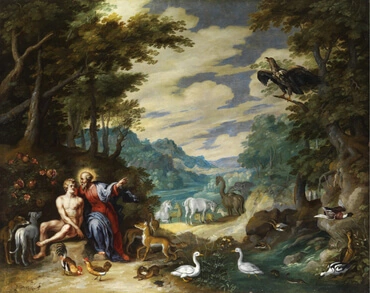1
Ja Josua nousi aamulla varhain, ja he matkustivat Sittimistä ja tulivat Jordaniin asti, hän ja kaikki Israelin lapset ja he olivat siinä yötä ennenkuin he matkustivat ylitse.
2
Ja tapahtui kolmen päivän perästä, että päämiehet menivät leirin lävitse,
3
Ja käskivät kansalle, sanoen: kuin te näette Herran teidän Jumalanne liitonarkin, ja papit Leviläiset kantavat sitä, niin matkustakaat te myös siastanne ja seuratkaat sitä,
4
Kuitenkin niin että teidän välillänne ja hänen on liki kahdentuhannen kyynärän pituus siaa; eikä teidän pidä tuleman häntä juuri lähes, että te tietäisitte tien, jota teidän pitää matkustaman; sillä ette ennen ole sitä tietä vaeltaneet:
5
Ja Josua sanoi kansalle: pyhittäkäät teitänne, sillä huomenna tekee Herra ihmeellisen työn teidän keskellänne.
6
Ja Josua puhui papeille, sanoen: ottakaat liitonarkki ja menkäät kansan edellä; niin he ottivat liitonarkin ja menivät kansan edellä.
7
Ja Herra sanoi Josualle: tänäpänä rupeen minä tekemään sinun suureksi koko Israelin edessä, että he tietäisivät, että niinkuin minä olin Moseksen kanssa, niin minä olen myös sinun kanssas.
8
Ja käske pappeja, jotka kantavat liitonarkkia, ja sano: kuin te tulette Jordanin vetten ääreen, niin seisahtukaat Jordanissa.
9
Ja Josua sanoi Israelin lapsille: astukaat tänne ja kuulkaat Herran teidän Jumalanne sanaa.
10
Ja Josua sanoi: siitä tietäkäät elävän Jumalan olevan teidän seassanne, ja että hän kaiketi ajaa pois teidän edestänne Kanaanilaiset, Hetiläiset, Heviläiset, Pheresiläiset, Gergesiläiset, Amorilaiset ja Jebusilaiset:
11
Katso, kaiken maailman hallitsian liitonarkki menee Jordanissa teidän edellänne.
12
Niin ottakaat nyt teille kaksitoistakymmentä miestä Israelin sukukunnista, jokaisesta sukukunnasta yksi mies.
13
Ja pitää tapahtuman, että kuin papit, jotka kantavat Herran, kaiken maailman hallitsian arkkia, laskevat jalkansa Jordanin veteen, niin se vesi, joka Jordanissa ylimmäiseltä puolelta juoksee, eroittaa itsensä, niin että se seisoo yhdessä läjässä.
14
Ja koska kansa läksi majoistansa menemään Jordanin yli, ja papit kantoivat liitonarkkia kansan edellä,
15
Ja kuin arkin kantajat tulivat Jordaniin, ja pappein, arkin kantajain jalat kastuivat veden syrjään, (ja Jordan oli täynnä partaaseen saakka kaiken elonajan).
16
Niin seisoi se vesi, joka ylimmäiseltä puolelta juoksee, koottuna yhdessä läjässä, sangen kaukana Adamin kaupungin puolessa, joka on Zartanin tykönä; mutta se vesi, joka juoksi alas korven mereen, nimittäin Suolaiseen mereen, väheni ja juoksi pois; niin meni kansa yli Jerihon kohdalla.
17
Ja papit, jotka kantoivat Herran liitonarkkia, seisoivat kuivan päällä, asetetut Jordanin keskellä ja koko Israel kävi kuivan päällä sen lävitse, siihenasti että kaikki kansa tuli Jordanin ylitse.







